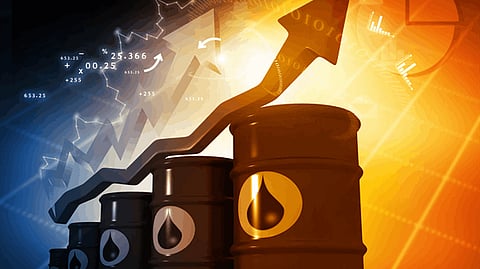
- News Updates
- PSU Watch
- Defence News
- Policy Watch
- हिन्दी न्यूज़
- Jobs Watch
- States News
- Event News

New Delhi: All eyes are set on the Organisation of the Petroleum Exporting Countries (OPEC) meeting today as fuel prices continue to be contingent upon the outcome of the meeting. Even as fuel prices have traced a downward trajectory in the last two months, petrol and diesel prices could go up from next week if OPEC decides to cut supply and bring down crude oil prices in its meeting that's scheduled to take place later in the day.
According to market analysts, a big cut in production is the most likely outcome of the Vienna meet despite pressure to lower prices further by US President Donald Trump.
After fuel prices in India reached a record high of Rs 84 on October 4 in Delhi, fuel prices have gradually came down. State-run retailers have cut down petrol and diesel prices again on December 6, as petrol went down by 40 paise while diesel by 43 paise. A litre of petrol costs Rs 71.32 in Delhi, Rs 76.90 in Mumbai, Rs 73.99 in Chennai and Rs 73.36 in Kolkata. Diesel, on the other hand, is priced at Rs 65.96 in Delhi, Rs 69.02 in Mumbai, Rs 69.63 in Chennai and Rs 67.79 in Kolkata. Currently, petrol is at its lowest this year.
What has also contributed to the decline in prices is a cut of Rs 1.5 in excise duty and a Rs 2.5 cut in sales tax or VAT in several states. Besides, oil retailers were also asked to bear a loss of Re 1 on every litre of fuel sold in India.
However, oil distributors believe that the Assembly election results due on December 11 could swing the government policy in the reverse direction, as the Centre might look to boost its own revenue kitty because duties on fuel is a big tool to plug the fiscal deficit. Oil retailers are also likely to make up for their losses in a bearish market, as was indicated by the finance ministry earlier.
But if crude oil prices rise, reversing the change in excise duty structure may not be a viable alternative for the government.
